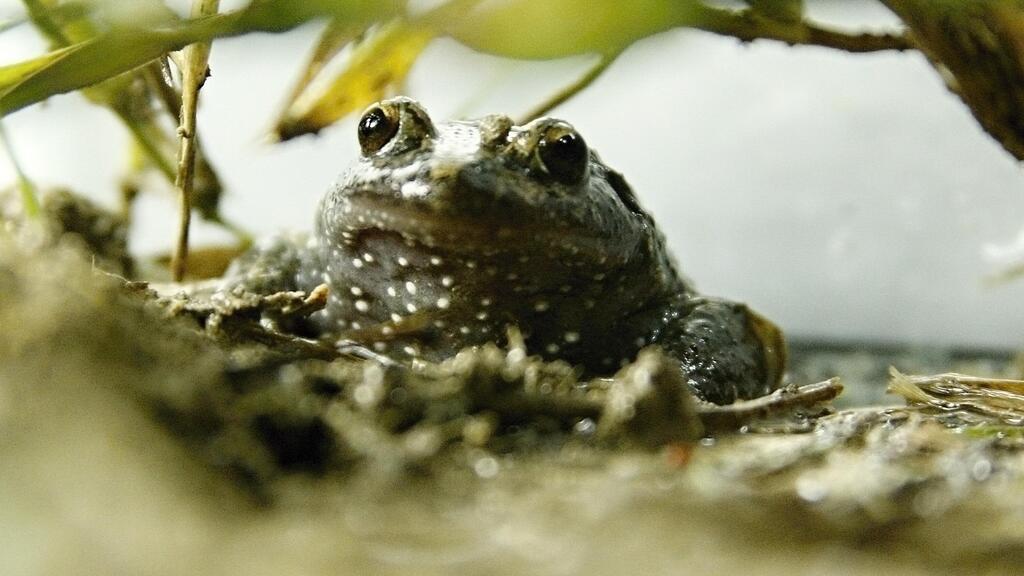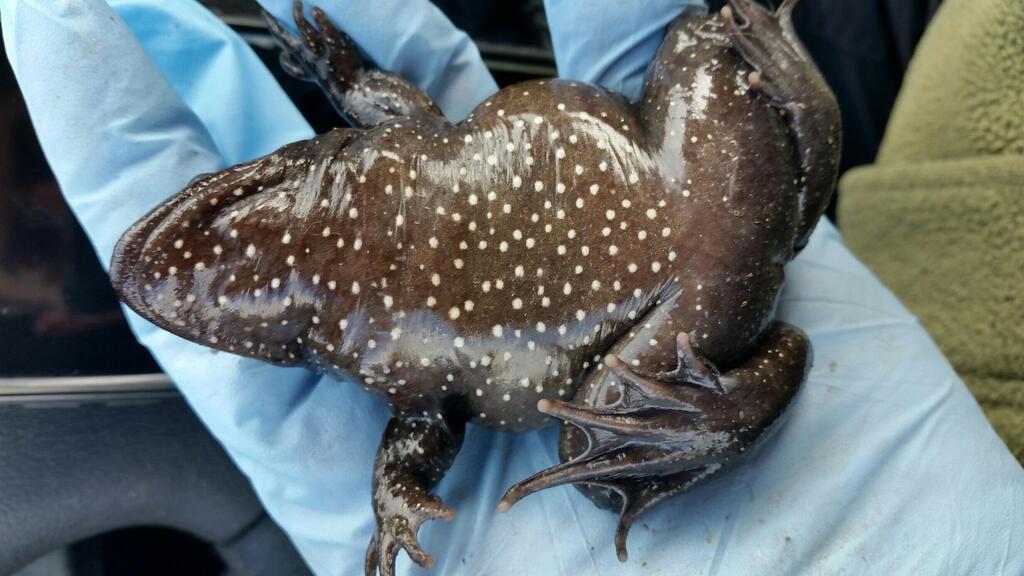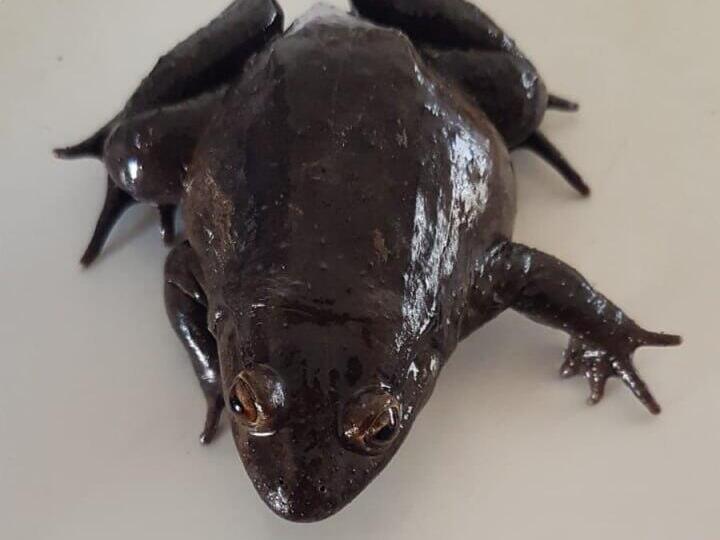Getting your Trinity Audio player ready...
Conservationists launched efforts to save the Hula painted frog from the ravages of war after the species rebound from near extinction in recent years. The amphibian was rediscovered in the Hula reserve in 2011, but fears mounted that the war could wipe out the entire population, for good in a single attack from rockets or drones.
Ranger Yoram Malka, who found the first frog, had established a breeding nucleus at the reserve, and another was set up at the Jerusalem Biblical Zoo.
Only four of the species were found in the mid-1950s in the Hula Valley, the only place in the world where this frog exists. Its name refers to its unique short, round tongue that cannot extend from its mouth, as well as its distinctive black belly. In 1996, the frog was declared extinct by the International Union for Conservation of Nature (IUCN) after no more were seen for decades.
The main factors behind its disappearance were the draining of the Hula wetlands and the destruction of its natural habitat. Now, there are two breeding programs for the species, one at the Hula Nature Reserve and another at the Jerusalem Biblical Zoo.
Little was known about the frog, but researchers estimate that about 250 frogs inhabit the reserve. However, even this figure is uncertain. The reserve set up terrariums (sealed enclosures for raising small land animals) and an additional habitat where the frogs could grow in peace.
The evacuation, dubbed “Operation Painted Frog,” involved packing the frogs, along with plenty of food such as grasshoppers and crickets, into terrariums and transporting them in two vehicles to the Jerusalem Biblical Zoo. “The zoo accepted responsibility for them, with the plan to return them after the war,” Sinai said. “Meanwhile, a fire already broke out near the reserve, which thankfully was contained. But we couldn’t be certain the breeding nucleus wouldn’t be affected. Additionally, we took some of the larger frogs and released them back into nature. This was the first reintroduction in the reserve, in the habitat we’d prepared for them ahead of time.”
“This year has been exceptional,” Sinai added. “For the first time, we established a habitat for the frogs in the wild and conducted the first reintroduction. We want to minimize risks because this is such a rare species. It’s one of the world’s ten rarest amphibians, and we don’t want it to be harmed.”
Get the Ynetnews app on your smartphone:





